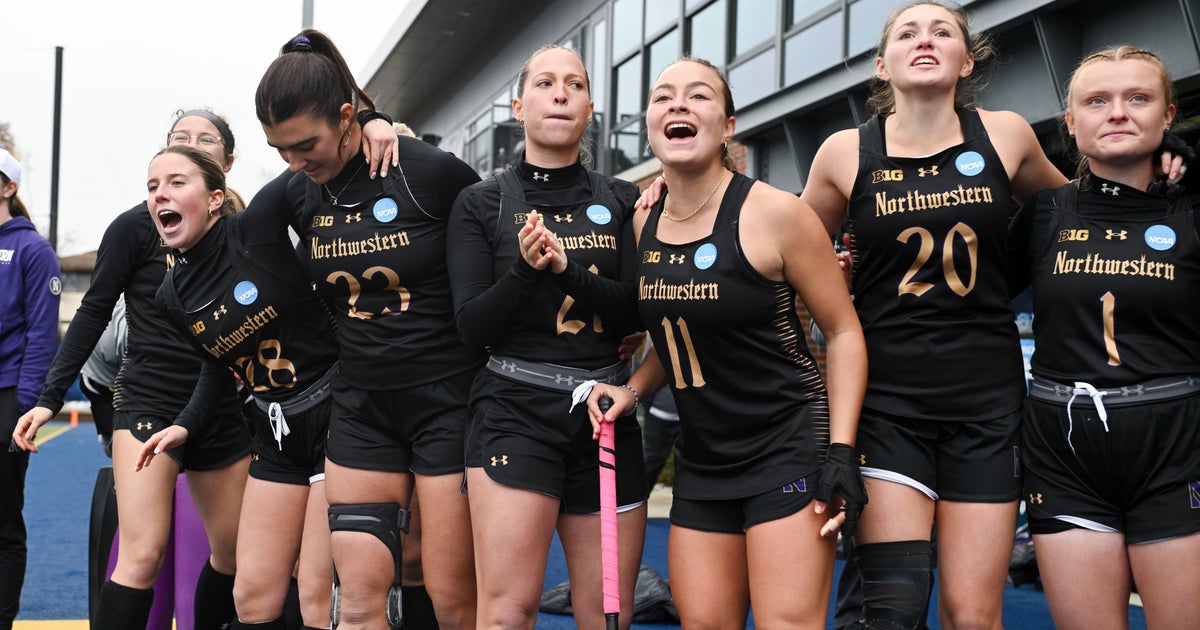Bernstein: College Players Find Their Voice, Have Power To Create Change
By Dan Bernstein--
CBSChicago.com senior columnist
(CBS) The coincidental timing wasn't lost on those who have been paying attention to the shifting power structure of college football. It was playing out simultaneously Monday — football players at the University of Missouri came together to topple the president of their entire school system, lending their weight to protests over his tepid response to incidents of racism on campus, and the University of Illinois finally fired its long-embattled athletic director.
At Illinois, Mike Thomas' fate was sealed in part by the exposure of his hand-picked football coach as a ruthless sadist who overruled and undermined doctors and trainers while shaming and endangering injured players. The reason any of his behavior came to light was because former player Simon Cvijanovic took to Twitter in May to detail the abuses publicly, spawning both media examination and the school-commissioned independent probe that ousted coach Tim Beckman and ultimately his boss.
Here were two major colleges forced into real action, not by any government, conference authority or doddering NCAA plutocrats, but by students and former students, players and a former player. Perhaps the most interesting observation, however, came from a coach at another school not far from these, one that had been ground zero for a football labor movement not long ago.
Northwestern football coach Pat Fitzgerald saw his program become the testing lab for player unionization last year, when the College Athletes Players Association helped organize players to claim that they were university employees entitled to collective bargaining. The effort was eventually denied by the National Labor Relations Board, which dismissed the petition in August.
At the time, the school was forced into an awkward position, having to appear supportive and sympathetic toward its own students while also trying to prevent a ruling that was a clear threat to its bottom line and status quo. Northwestern's strategy was to point out consistently that many of the end goals of unionization could be met through other means. As players demanded "a seat at the table," Northwestern officials insisted that they already had one and that it was a matter of how they chose to express collective opinion. They viewed the union as needlessly formal, the equivalent of using a bazooka on an ant hill.
In retrospect, they see that as carrying at least some truth, and Fitzgerald is even patting himself on the back.
"Any time there's positive change from the standpoint of seeing the power of student-athletes and the power of students, you've always heard me be an advocate for that," he told the Chicago Tribune. "You can look back to previous statements that I made … some of the reasons I believe so strongly that our players already had all of the power that they need."
It's convenient for him that he gets to appear somewhat correct here, without needing to have it proved on his own campus or in his program. It's also not completely true that they have all that they need, only that some had enough at the right time.
Cvijanovic was a former player speaking out, which is important to note. It's not the same as somebody currently on scholarship or on a roster having the courage to become a whistleblower. Nor is the Missouri example entirely comparable to an ability to wield influence over more mundane, less explosively emotional causes.
What's inarguable, though, is that by making revenue-generating sports so important, these colleges have already empowered players to act. It's merely a matter of how actively coaches and administrators choose to facilitate their involvement. It can't be strike threats and brinksmanship all the time, but seeing such a thing occur should be enough to know it's real.
Cvijanovic didn't have a seat at the table, but he shouted from another room. The Missouri players stormed in and flipped the table over, leaving the meal in important officials' laps.
Schools should be on notice that players who know how much they matter will find their voice, and it doesn't always have to be messy.
Dan Bernstein is a co-host of 670 The Score's "Boers and Bernstein Show" in afternoon drive. You can follow him on Twitter @dan_bernstein and read more of his columns here.



